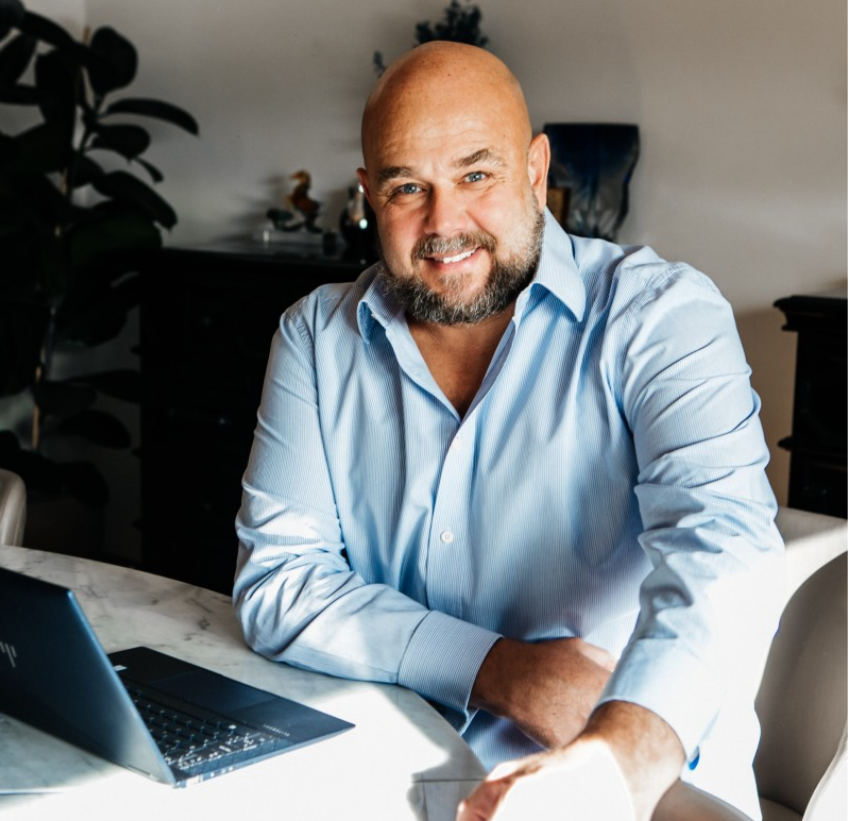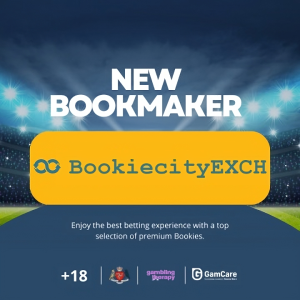Slots veteran Fredrik Elmqvist is turning his luck to the mad bad world of sports betting – but will it work?
Elmqvist is well-deserving of his reputation as the king of slots.
But – more than 10 years on from his epoch-making launch of Yggdrasil – the Stockholm native is turning his luck to the decidedly different proposition of sports betting in his latest project ParlayBay, which seeks to make its name as the new champions of micro betting.
The Swedish entrepreneur certainly has a nose for where the action is, describing it a “pretty interesting” time to be setting out on a venture such as this.
Elmqvist describes a US sports betting landscape that is shifting into a new, subtler gear following the marketing wars that characterised the earlier days of the PASPA repeal.
“For a few years there’s been a shift into sports betting – and you see in the United States rollout both the need for new products and to keep the marketing costs down, as well as still get new players coming through the door,” he says.

With the recent news of yet another Indiana igaming bill has died in committee – meaning that the proposition is now dead until 2024 – it does seem that sports betting might be the place where most creative energies are spent going forward, and exactly the place the industry’s more imaginative figures like Elmqvist will be popping up.
Like many start-ups hoping to get a foot in the door before embarking on a complex multi-jurisdictional licensing process, ParlayBay opened with a free-to-play prior to the businesses full-on real-money launch.
The business hit something of a milestone in November went it live with real money games for the first time, via the company’s partnership with Lithuanian gaming operator 7bet, around a month before Elmqvist joined.
“It’s an excellent time to join – I love this phase of a company,” he says. “At this early stage, everyone is involved in what’s going on, everyone is working collaboratively.”
Slots for sports
Micro betting is currently a vertical experiencing a great of buzz. Many operators see in the offering an intriguing vision of what a truly American betting experience will look like – the cure of the dreaded spreadsheet-ification fears that have dogged the launch of sports betting in the US.

The product that has been transplanted across the Atlantic is still European in most of its essential aspects – so goes the argument – and new products that make sense for the American consumer are needed.
As sports betting evolves in the US, many operators see micro betting as the path to continued revenue growth as the wave of sports betting expansion begins to slow. The frequency of the vertical – as well as the instant gratification it provides – are features of the experience that seem to have more in common with igaming than more traditional forms of sports betting.
A recent report by H2 Gaming Capital, in partnership with iGB, examined this phenomenon of the segment combining the skill of sports betting with many features more traditionally associated with online casino, arguing that eventually we could see similar levels of in-play betting to European Tennis and Basketball seen in American sports as a whole.
“The kind of space that Parlay Bay is in – same game parlays or micro betting – the timing is right for us to also go into the US market, which is of course is something that we are looking at now as we shape strategy in the next couple of months,” says Elmqvist.
Big in America
Many in the industry now consider entering the US market as an operator to be something of a Sisyphean task owing to the increasingly consolidated market – and as such many look to entering as a supplier as the key to American success.
“There’s a few exits already from the operators and there’s a few operators that didn’t enter that you expected to enter, like bet365 – and there’s some providers that have not been there either,” says Elmqvist. “And there’s definitely a bottleneck in entering the market for sure with all the restrictions, regulations and scrutiny.”
Churchill Downs have paved an interesting path as an online operator than successfully managed a transition to supplier. In July 2022, the company indicated than it would be engaged in the process of transforming its online sportsbook TwinSpires into an entirely B2B offering, a project that culminated with the November announcement that the business would be providing DraftKings with a horse racing product – the wonderfully named DK Horse.
ParlayBay are not the only business seeking to make splash with the vertical. But Elmqvist does not believe that the different organisations with their different propositions will necessarily be in simple completion.
“There are a few in there now, taking a lot of the market and they have a similar but not the same product,” he says. “So I do believe that there is a room for guys like SimpleBet and ParlayBay coexisting in the same arena.”
Whatever fate lies ahead for ParlayBay in the years ahead, Elmqvist has already done more than enough to earn his reputation as one of the most innovative individuals working in the industry.
Innovating today
Today’s gaming industry looks very different to the one that Elmqvist first entered all those years ago.
“Oh my God, it’s changed tremendously – there’ve been so many twists and turns. We saw what happened with poker, we got the UIGEA. We had the start of regulations in Europe.”
Beyond the creeping rise of the world’s regulatory regimes, the business landscape varied hugely from today’s multi-national corporate conglomerates.
“The big guys were basically what was in UK – and of course there were guys in Italy, but they were very segregated,” says Elmqvist. “It was not so globalised or Pan-European as it is today. It was more local.”
The differences in the gaming sector from the noughties and now is a difference in kind, not in scale. Subsequently, it’s inevitable that the shape of innovation in 2023 will differ massively from what came before. Whereas before technology proved to be the limiting factor, that is no longer the case
Elmqvist argues – perhaps prosaically – that the biggest roadblock to change these days is regulation, though he argues that even regulation brings perverse kind of innovation in response.
“On one side, the regulations prevent innovation, but it forces people to innovate to provide a great user experience within the restricting regulations,” he says. “How can we find a way to provide the best UX and still be compliant with the five-second rule, for example, and that is just a small innovation that you might be able to run for six to 12 months until some regulator comes up with a reason to block exactly that.
Nostradamus
While industry still rife with dark talk of lay-offs in the year ahead, Elmqvist argues that this could prove to be a time of experimentation.
“During layoffs, it’s not just the low performers being laid off, there’s people being laid off across the board – including people with experience.”
Elmqvist says that he and ParlayBay CEO Patrick Nordwall first met in circumstances like this, having both been involved in the IT sector around the period of the Dot.com boom.
“There were a lot of companies that got in there in that explosion of innovation and drive to global markets and new products. Then when people were laid off in that crash, they came out swinging with new products that have proved to be successful today.”
“We’re going see a lot of that stuff happening. A lot of innovation will happen now in these high pressure times of people being laid off – whether or not that’s going to be part of the ParlayBay space – for sure there will be people out there.
“And we know with the global aggregation system that is here now, especially in Europe, if you get a good product out, you can actually get it to market fairly quickly and make an impact, which you couldn’t when we started.”




